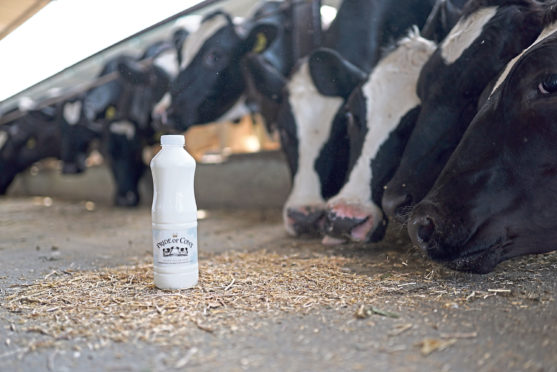An invite-only service which delivers high-quality milk direct to consumers’ doorsteps has helped a dairy farming family in India build one of the most successful dairies in the country. Caroline Stocks finds out more
Under its Pride of Cows brand, Parag Milk Foods hand-delivers processed, chilled milk to 45,000 shoppers across India within 10 hours of it leaving their herd.
Promoted as being milk from India’s most pampered cows, it has been seized upon by high-end customers including Bollywood stars and celebrity chefs who are prepared to pay three-times the usual retail price of milk to get their hands on a bottle.
While India is the largest producer and consumer of milk, contributing to 20% of the world’s milk production, concerns over milk quality and safety have led consumers to seek out alternative products.
Recognising the trend – and seeing the opportunities for premium products thanks to the growing number of middle-class shoppers in the country – Parag Milk Foods developed their invite-only service, the first of its kind in the country.
“We see milk at your doorstep as the next evolution in the Indian dairy market,” says Akshali Shah, whose father Devendra set up the dairy in 1992 and has since grown it into one of the biggest in India.
“We’re offering a high-end service which promises to be a step-up from other milk on the market, and it’s something people are prepared to pay for.”
The creation of India’s celebrity milkmen goes back to first generation farmer Devendra’s herd of Holstein Friesian cattle.
While he was proud of raising cattle numbers to 3,500 head, he was concerned that average cow yields lagged behind producers in the rest of the world.
“The average yield per cow in India is 1,500 litres,” says Akshali.
“On many farms there are problems with hygiene, nutrition, cow comfort and healthcare, and a lack of knowledge about scientific practices.
“My father wanted to change that, so in 2005 he set up a research and development centre in Manchar, with a view to educating farmers on how to produce the best quality milk which use best global practices.”
As well as installing the latest dairy technology from Europe, the family started to work with a team of nutritionists to optimise cow diets.
Today cows are fed a ration of alfalfa, corn silage and concentrates which are grown especially for the farm under contract.
Each animal is electronically tagged to pick up health problems early, while staff carry out physical checks three times a day. Unwell cows receive homeopathic and Ayurveda treatments – a form of Hindu medicine – a move which led the farm to become the first antibiotic-free herd in India.
Having made so many improvements to their production system, the family realised their milk quality had improved so much that it was superior to anything else on the Indian market. What’s more, they realised they needed to capitalise it.
“We turned our R&D centre into a commercial one and set up India’s first ‘brand by invitation’, where we invite people to be part of the dairy,” says Akshali.
“It’s a subscription model, and to become a customer you need to get referred by other customers.
“It adds exclusivity that people want to be part of, and they are prepared to pay three-times the price of usual milk for it.”
In a country which struggles with freshness due to poor infrastructure and problems with quality – 70% of the country’s milk is adulterated – Pride of Cows focuses on traceability and freshness.
Every stage is managed and tracked by the dairy, with milk delivered by GPS-tracked cold storage vehicles to one of 22 depots in four cities.
The bottles are then hand-delivered by a team of 1,200 delivery boys in insulated bags to 45,000 consumers, who order their milk using an app.
To build a premium consumer base from scratch, Akshali says the dairy made a list of their top-100 dream customers, including celebrities, socialites and business people.
“We approached them and told them about the service, and very quickly those 100 people led us to our first 1,000 customers.
“We are primarily targeted at discerning milk lovers who are prepared to pay for quality,” she adds.
“They are mostly urban sophisticated housewives with high disposable incomes who think their families deserve the best.”
